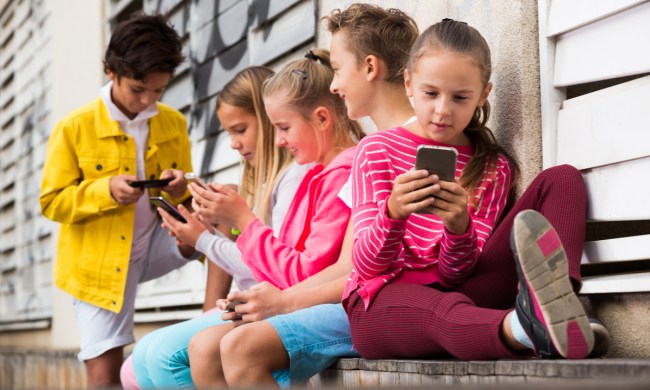Social media is an almost unavoidable part of daily life for today’s teens, but it can be so pervasive that teens can actually become addicted. While at first, it may not seem as serious as being addicted to a substance like alcohol and drugs, social media addiction can have serious mental health effects with long-term implications in a teen’s life.
Be on the lookout for signs of social media addiction in teens and learn how to help them if you spot them in your own child. There is help available if you see the warning signs at home.

What are the examples of social media addiction?
Like other addictions, if social media is a compulsive habit taking over your teen’s life, it could be an addiction. Here are five potential signs of social media addiction in teens.
- If they try to use social media less, but can’t.
- If they’re restless, angry, violent, or cranky when they can’t use social media.
- If they use social media so much it negatively affects their academic work, social life, or job.
- If it seems like they’re constantly thinking about social media, even when they aren’t using it.
- If they go right to using social media whenever they’re upset to forget about their problems.
Really liking social media is one thing, but not being able to put it down is another. It may seem like most teens are “addicted” because they’re on it so much, but take stock if they are really on it constantly or if they are unable to put it down when asked. Can they safely drive to their destination without having to check their social media? Can they make it through family dinner without having to check it again? Do they lash out when you try to impose any limits? When you go to check on them doing their homework, are they actually on social media again? Does every conversation come back to social media and is every interaction a chance for a selfie to post?

What are the causes of addiction to social media?
Every notification of a new comment, new post, or new like causes dopamine, a sensation of pleasure, to flood the brain. This is addictive and the same hormone that causes some other addictions. Every retweet or other interaction gives this pleasure and leaves the addict craving more.
Cell phone addiction is also linked to social media addiction. If you’re always on your phone, you’re bound to open social media apps while you’re on there, which can lead to becoming addicted to the apps themselves. Video games can also give the same dopamine hit in the brain as social media or cell phone use, so if a teen can’t use video games they may turn to social media to get the same feeling.
The fear of missing out, often nicknamed FOMO, is another common cause of social media addiction. Teens want to know what their friends are doing, what is happening with celebrity news, and what the trending gossip is. It’s part of social currency because being out of the loop isn’t cool.
What can I do about social media addiction?
Social media addiction can lead to depression, anxiety, sleep deprivation, poor grades, body dysmorphia, and other negative effects. If you think your teen could be addicted to social media, talk to your child’s pediatrician. They can refer you to resources and talk to you about your child’s specific case in context.
Set limits on your teen’s social media use. Just like if they were addicted to another substance, they have to avoid what they are addicted to even though that will be very difficult, especially at first. You can keep their phone and other devices away from them and sign them up for alternate activities to let them not be so bored without it, like sports. They can still have screen time like watching TV, which will also help pass the time. You can give them a fidget toy so their fingers and hands don’t feel so empty without a phone. They may need to go to therapy or even a treatment program.
With your support, your teen can make it through this.



